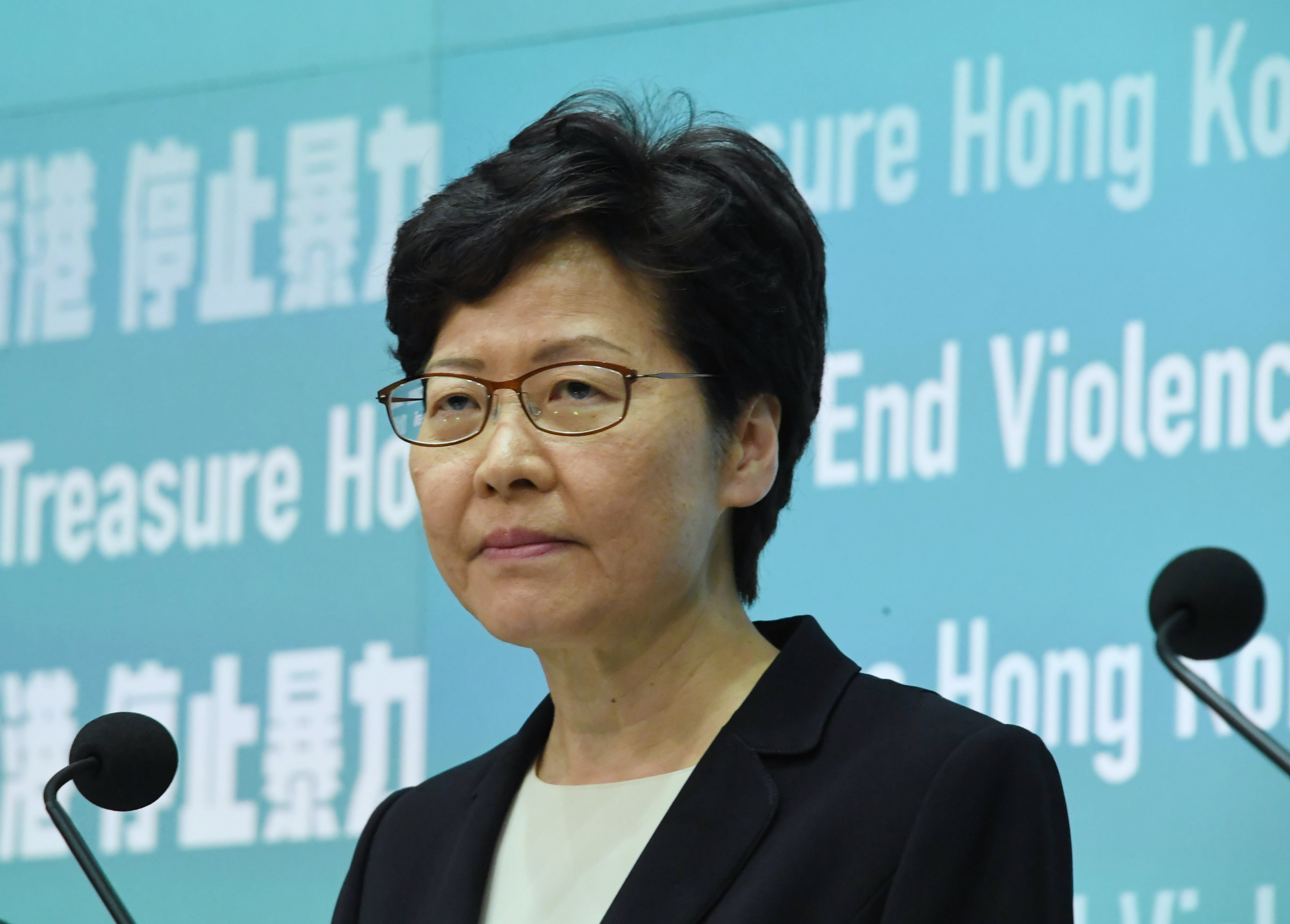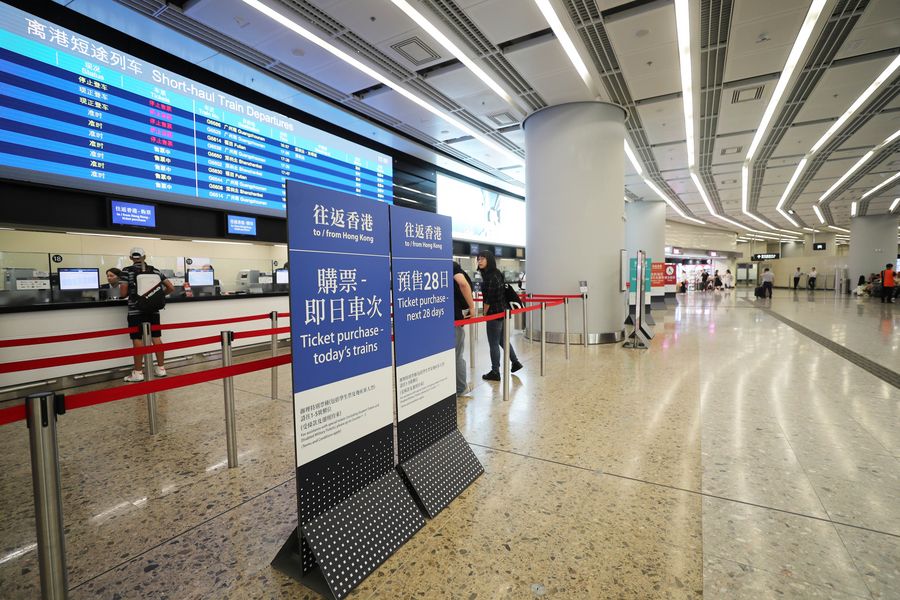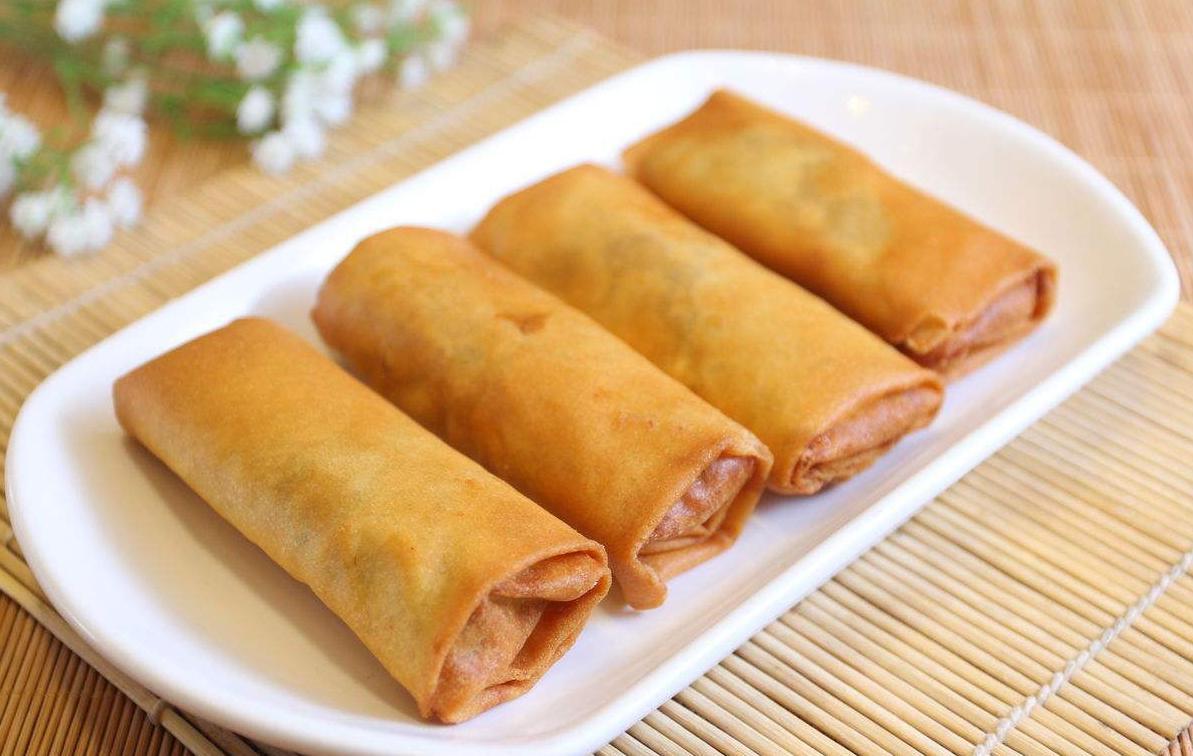Chief Executive of China’s Hong Kong Special Administrative Region (HKSAR) Carrie Lam attends a press conference in Hong Kong, south China, Oct. 4, 2019. (Xinhua/Lui Siu Wai)
Xinhua October 04 , 2019
The government of China’s Hong Kong Special Administrative Region (HKSAR) established an anti-mask law on Friday in the latest drive to end the prolonged violence.
HKSAR Chief Executive Carrie Lam told a press conference that the government has invoked the power under the Emergency Regulations Ordinance and passed the Prohibition on Face Covering Regulation to “create a deterrent effect against masked, violent protesters and rioters.”
The ban, designed to end violence and restore order, will come into effect on Saturday, Lam said.
The move added Hong Kong to the list of countries and regions that have anti-mask legislations, including France, Canada, Italy and many states in the United States.
SERIOUS DANGER
The Asian trading and financial hub has been plagued by unrest since June as radical protesters, often black-clad and masked, set fires on streets, vandalized public facilities including metro stations, assaulted police and beat up civilians who held different political views.
The unrest originated from protests over the proposed ordinance amendments concerning fugitives’ transfers. Although the HKSAR government has withdrawn the amendments, violence continued as protesters veered off their original agenda to raise the ante, causing a split in society and taking a heavy toll on the economy.
Although Hong Kong did not enter a state of emergency by invoking the emergency law, Lam said Hong Kong is in extensive and serious public danger.
The chief executive said violence has escalated to a very alarming level in the past few days, causing numerous injuries, and “leading Hong Kong to a chaotic and panic situation,” with more participation of students.
“We are indeed, in an occasion of serious danger, which is a stated condition in Emergency Regulations Ordinance for the chief executive in council to exercise certain powers,” she said. “It is essential for us to stop violence and restore calmness in society as soon as possible.”
About 1,100 people have been injured in recent violent incidents, including over 300 law enforcers, according to Lam.
LEGISLATION EXPLAINED
Elaborating on the new regulation, Secretary for Security John Lee said masks will be banned in assemblies and processions, authorized or not, as well as riots, and offenders face a jail term of up to one year and a fine as much as 25,000 Hong Kong dollars (nearly 3,200 U.S. dollars).
Hong Kong saw many authorized and peaceful rallies morph into violence in recent weeks as radicals marched out of the designated zones to block roads and engaged in illegal acts from arson to assaulting police.
The new regulation has set exemptions for people who have to wear a mask for special needs, including for medical, health and religious reasons, according to the government gazette.
Lam also made it clear that the law is subject to a negative vetting and will be tabled in the Hong Kong Legislative Council (LegCo) for discussion. The meeting of the LegCo will be resumed on Oct. 16.
WHY NECESSARY?
Advocates for the ban said masks have been used by rioters to conceal identities and escape legal penalties in the drawn-out unrest, leading to a higher level of aggression on their part.
“Many police officers and residents were injured in the escalated violence, but the police could not bring all rioters to justice as most of them wore masks to hide identities,” said Elsie Leung, former secretary for justice of the HKSAR government.
“It is the right thing that should be done,” Leung said, adding that the introduction of the law is in line with the Basic Law and the Hong Kong Bill of Rights Ordinance.
Barrister Ronny Tong, a member of the HKSAR’s Executive Council, said legal weapons are now needed to quell the mob violence, which escalated on Tuesday and resulted in a 18-year-old rioter being shot and injured while assaulting a police officer.
Tong called for public understandings that the anti-mask law is not meant to encroach the freedoms of speech and assembly and has no impact on law-abiding citizens.
Prior to Hong Kong, anti-mask legislation has been used in a number of countries as a deterrence to mobsters, said Lawrence Ma, barrister and chairman of the Hong Kong Legal Exchange Foundation.
“What the HKSAR government did is in line with international practice and is beyond reproach,” said Ma.
PUBLIC RESPONSES
In a joint statement issued on Friday afternoon, 40 members of the LegCo said they support the HKSAR government in taking effective measures to help with police law enforcement and to end violence and chaos.
Numerous social and political groups and chambers of commerce in Hong Kong have also voiced support to the establishment of the regulation.
Democratic Alliance for the Betterment and Progress of Hong Kong (DAB), a political group in Hong Kong, also said in a statement that this is a difficult but absolutely necessary decision as Hong Kong is in a state of serious public danger where citizens’ safety and freedom of expression can not be guaranteed.
The DAB called on all Hong Kong residents to support the new regulation, draw a clear line with illegal and violent acts and support police in their law enforcement, so as to bring Hong Kong back on track.
An online petition supporting the ban has also been signed by more than 40,000 netizens within a few hours since it was launched, said Lawmaker Elizabeth Quat, the convenor of an advocate group behind the initiative.
“It showed people’s support for the new law and their urge for restoring social order,” said Quat, who however believed the punishment is too lenient and advised the government to raise punishment if necessary.










